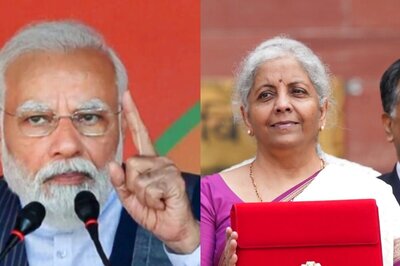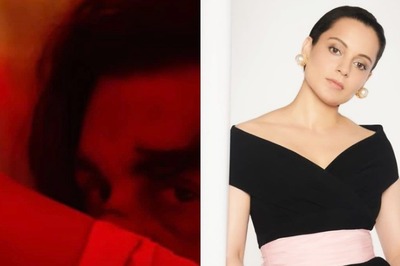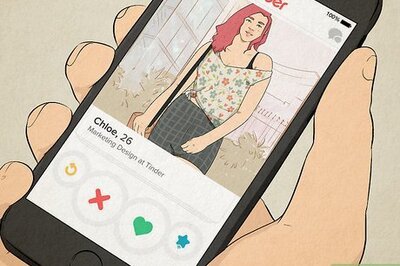
views
This International Women’s Day, we chronicle the journey of a woman who stumbled upon acting, rose to fame by playing hateful characters on Indian television, did not let professional hazards bog her down and dared to find newer avenues in both TV and films at a time when getting pigeonholed was the norm.
In a career spanning over 25 years, she has consistently broken stigma by constantly exploring the grey, and how.
You may currently know her as Radhika Malhotra, the affectionate, understanding mother-in-law from Silsila Badalte Rishton Ka, but not too long ago, she was the most hated woman on Indian TV.
Here, in conversation with Jaya Bhattacharya on finding ground and then breaking it.
Despite doing television since the last 27 years, you’re still best remembered as Kyuki Saas Bhi Kabhi Bahu Thi’s Payal. Weren’t you iffy at all about playing such a negative role, especially at a time when people took TV extremely seriously?
People used to hate me. I did not expect that this role would become so big because it was the beginning of daily soaps and one had no idea what was happening. But it was so much fun. I was an introvert, so being Payal came in very handy because people never messed around with me, which gave me more time to do what I wanted to do.
People loved to hate you during that time…
Yes, and how! I would get ‘gaalis.’ Like this one time, Smriti (Irani; who played Tulsi, the lead role in Kyuki) was full-time pregnant and we’d gone to a bakery in Lokhandwala. We were holding hands and choosing which pastry to eat when one lady came and started pulling my hand away from Smriti’s, telling her ‘Iske saath mat raho. Ye bohot buri aurat hai’. Smriti tried to stop her and I was laughing away to glory. That was the success of my role, my acting. I totally welcomed it.
Usually when a character gets so popular, actors often find themselves being stereotyped…
Totally. After I put white in my hair and became the mommy kind, I never ever reverted back to glamour roles. I was completely stereotyped and for years to come, I was only offered negative roles as if I wasn’t capable of anything else. Nobody wanted to experiment at all. I was completely bored. So I ended up not working on TV for seven years. It’s not a small time. But even after that, I was getting calls only for negatives. Then thankfully Gangaa and Thapki Pyar Ki happened and now I am doing Silsila Badalte Rishton Ka, which is great fun.
A young Jaya Bhattacharya. (Image: Special Arrangement)
Did you always want to be an actor?
I had no such aspirations. My parents wanted me to become a classical vocalist and a Kathak dancer. Even listening to filmy music was banned in my house. When I was in Class 9, I had to do a ‘bhookh hadtal’ to watch a film called Anmol Sitaare. That was how it was. In fact, my father accepted my first assignment.
Today audiences are getting exposed to newer platforms and content, but don’t you think Indian TV is still stuck in time?
Even though the audience has moved on but still a large population remains from the same era. Though it is extremely unfortunate, but when contemporary stories do get aired, they don't get accepted. It’s as if the audience cribs about television regurgitating age-old themes but refuses to accept the new.
With the emergence of the digital space, acting has become more democratic than ever before but don't you think bias against television actors still persists?
Not really, because I have got work in the other mediums only because of my television appearances.
Read: Meet Salman Ali, the School Dropout Who’s Won Indian Idol 10
Read: Is Bollywood Now Comfortable Featuring TV Stars as Film Leads?
The TV industry has changed quite a bit since you started…
Yes, it’s quite different today than what it was when I came in. I am grateful that I had that opportunity of growing, discovering and rediscovering myself in everything I did. Otherwise it would have been very difficult. Today, you dole out episodes everyday and don’t get time to grow.
Looking back, what has been the biggest lesson you’ve learnt in all these years?
There are many lessons that I have learnt, especially this—jyada bhalaai karne ki koshish mat karo, joote padte hai. I have stopped doing that now.
What would you like to tell young women who wish to pursue acting in television?
That it is not just fun and games. Doing television requires much more time, energy, commitment and persistence to survive than most other mediums.
Jaya Bhattacharya with her father. (Image: Special Arrangement)
Follow @News18Movies for more.



















Comments
0 comment